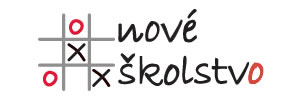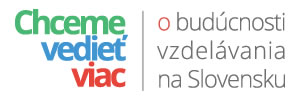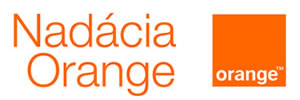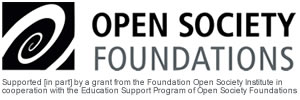Trends
Learning takes place in different places, not only in schools but also in families, workplaces, community centers, and informal groups. Virtual and physical learning spaces intertwine. Education is distinctly personalized. The learner significantly influences the objectives, content, scope, methods, and the results of their learning. Teachers work in teams and learning takes the form of collective intervention. The content of education, its legal status and regulation, are all significantly affected by public opinion and the ideas of the different stakeholders. The government retains the responsibility for providing the compulsory common core and equal access to education.
Challenges
What shifts will occur in the status and roles of the various stakeholders in education and how will they shape it? What will need to change for education to be based on the principle of motivation and facilitative learning? How flexibly will systems work for the recognition of diplomas, various certifications, measurements, and accreditation?
| Imagine a FUTURE where there is a consensus that: | Imagine a FUTURE where there is a consensus that: | Imagine a FUTURE where there is a consensus that: |
| AN INDIVIDUAL IS THE MAIN STAKEHOLDER IN EDUCATION | THE COMMUNITY IS THE MAIN STAKEHOLDER IN EDUCATION | THE GOVERNMENT IS THE MAIN STAKEHOLDER IN EDUCATION |
| Support is given to the diversity of education providers and the uniqueness and innovation of educational programs. This is an area of free competition, regulated by supply and demand. | Support is given to the diversity of learning opportunities inside and outside the community. This is an area that is significantly affected by the needs of the community and its members, which naturally limit the choice of educational programs. | Support is given to successful completion of the state-guaranteed educational programs, which ensure placement on the labor market and a good standing in society. The choice of educational programs is regulated and limited by the state. |
| The government has shifted much of the responsibility for education to families and private companies. Primary education is carried out in the family or on the basis of a contract between the child’s legal representatives and private education providers. | The government has shifted a significant part of the responsibility for education to the communities, particularly in terms of specialization. Primary education is carried out on the basis of a contract between the government and the communities or regions. | The government is the sole guarantor of providing education and placement to graduates, as it regulates not only the choice of educational programs, but also supply and demand in the labor market to some extent. Primary education is carried out on the basis of a contract between the government and the legal representatives of children. |
| Management, organization, monitoring and evaluation of the quality of education are a matter for agreement between the providers of educational programs and clients. The quality of education is increased through competition and comparisons through independent audits and rankings. | Management, organization, monitoring and evaluation of the quality of education are a matter for agreement between the government and representatives of communities and local governments. The content and quality of education are monitored by regional school boards with representatives of individual communities and public authorities. | Management, organization, monitoring, and evaluation of the quality of education are matters for the state. The quality of education is increased by expert supervision, standardized testing, labor market and labor mobility analyses, as well as analysis of graduate placement. |
| The educational infrastructure of national importance and support for strategic innovations is built through public-private partnerships. | The education infrastructure of supra-regional significance is built by consortia of communities, regions, employers, and government agencies. | The government decides on strategic investments in education and in intelligent specialization in selected sectors of industry. |
| Commercially provided tutoring, mentoring, and supervision help individuals to establish their optimal learning and career path. Consideration is given to the individual needs of learners, the preferred learning styles, social background, personal profile, and cultural and family factors. | Informal communities of learners are led by various coaches and mentors and strive for consensus in setting up joint educational objectives while taking into account individual needs. Encouragement is given to participation, joint problem solving, and peer learning. | An educational institution is a place of preserving shared cultural memory, serves for the transfer of best practices, and sharing of new trends and innovations. The government supports civic education programs aimed at strengthening the solidarity between various social groups and the people who need help. |
OUR RESEARCH
Education of the future will not take place only in schools, but in several places at once (68%). Only 14% of people believe education will not be compulsory. Almost half agree with the view that there will be more focus on skills than on knowledge (46%). Education will be based on digital technology (86%), highly specialized to meet the requirements of the labor market (68%), and high individual performance will be expected from pupils (63%).
More than half (55%) of the people believe that the government should be responsible for the curriculum and ensure its quality in all schools. However, only one third (37%) prefer standardized testing to assess the quality of schools. Only 10% support greater parental involvement in school financing. The majority of people feel the government should provide schools with sufficient funding so that parents no longer have to spend anything extra on the education of their children.
People do not have a clear opinion on whether schools should compete with each other or develop in mutual cooperation. Close collaboration is preferred by 42% of people while 33% prefer competition between schools. Most people, however, agree with the view that schools should prepare children for work in adulthood and it is not that important if they also serve as centers for community events.
For 40% of people, teachers should be a source of knowledge and authority, but one-third believes they should be friends and guides to children in their learning. Most respondents (69%) are convinced that teachers should pay attention to all children and take care to develop the potential of each child. To get to know the needs of individual pupils and to work with that knowledge when teaching others is important to 59% of people, while to focus on supporting talented pupils is important only to 18%. More than half also believe that a good teacher supports children to help each other (55%) rather than encouraging them to excel over others in competition (15%). The teacher should also develop attitudes and values (61%) of children.
In Slovakia, the phenomenon of separating "private" and "school" life persists. Only slightly more than one-third of people think that parents should also have a say in what is taught in school and one fourth believe that parents should be actively involved in instruction. People are not convinced of the notion that children themselves should be involved in the decision making on what happens in school. More than half consider the idea unacceptable while one-third have the opposite view. Active participation of children in deciding what they learn is supported by 18%.
OTHER RESEARCH
NThe cost related to the education of a child just entering school is €200 on average. In the first year of primary school, parents spend approximately €430 per pupil. For secondary school students, the costs amount to €740. The highest costs are associated with the purchase of school supplies and clothing, and with participation in sports activities, and hobby clubs. 1
„There should be more variety in learning – more adaptability to children and theirneeds – we should no longer try to bring up an ideal socialist man.“ a workshop participant in the town of Rožňava
International comparisons highlight weak participation of our teachers in further education. In Slovakia, teachers attend fewer courses than their colleagues in other countries, despite being motivated by the so-called credit bonuses. Their explanation is that they are not happy with the choice of state-funded educational programs and other programs they would be interested in are too expensive. Most teachers show the greatest interest in those topics, which would prepare them for teaching pupils with special needs, but the offer of programs in this area is not sufficient to adequately cover the demand. 2
„The key problem of schools is authoritarian education, lack of respect, and lack of a partnership approach towards children. We still lecture them and punish them.“ a workshop participant in the city of Žilina
Despite many negatives connected to the teaching profession in Slovakia, most teachers are happy with their work and would choose the same profession again. 3
GOOD TO KNOW
The Ingunnarskóli School in Iceland was created after individual stakeholders of education — parents, teachers, the local government, and engaged people from the local community – agreed on four main elements to be promoted by the new school: connection with nature, connection with the community, uniqueness of the school spirit, and focused learning. Then they wrote down the principles which are important to them in education. Another requirement was added to these elements to organize learning in a variety of environments and in different places, so that pupils perceive the needs of the community and are motivated to work within it, even in adulthood. These requirements are also met by a flexible design. The school may use the same room as a dining room, then as a library, and even as a theater for the entire village.4
Vittra is a network of Swedish schools, which all seek to fulfill the "six commitments” through which they undertake to find the most appropriate approach to each child: to lead children to understand the meaning of learning; to develop their self-confidence and ability to collaborate with one another; to create a space for learning from one’s own experiences; and to prepare them for work in diverse groups and in an international setting. 5
„A natural element is swirling and pulsating around me. Children. Their energy could propel the universe. They have their whole lives ahead of them and we are there in school to pave their way for the future. Together with you, the parents. Let's finally do something together. Not schools, but you have to start asking for what your children should be getting – high quality education and upbringing. Without you, it will just be like fighting windmills.“ Petr Orsag, teacher
In the Netherlands, seven schools that have little in common with a traditional primary school were opened. Each pupil has an individualized learning plan designed to take into account their pace, learning objectives, and their interests. The plan includes compulsory topics and other parts that every child may choose for themselves. This plan is being reviewed every six weeks and parents participate in its update. So far schools still provide also traditional teaching and parents may choose which style they trust more. 6
„It is not the case that we are losing team work from schools. Rather, it has never been there. Often, teachers only take care of their subject and are happy if they manage to cover the topics prescribed by the state. At the same time, schools bear their share of responsibility for the lack of cooperation with parents. A typical parent meeting mostly turns them away from getting involved in the school.“ Juraj Hipš, teacher and activist
Footnotes
Profi Real Group (2012) Česi a Poliaci minú na prváčika v priemere 259 eur. Slováci o 43 eur menej. Najviac šetria Bulhari. Tlačová správa, 2.9.2012. Dostupné ako pdf
[1] Národný ústav certifikovaných meraní (2013) Základná informácia o výsledkoch štúdie OECD TALIS. Dostupné ako pdf
[2] Tamtiež.
[3] Koutecká, D. (2015) Od Brazílie po Nový Zéland – inovativní školy vznikajú po celém světe. In Perpetuum, Magazín pro rodiče a učitele, ročník II., číslo 4, 2014/2015. Dostupné ako pdf
[4] Tamtiež.
[5] Tamtiež.



